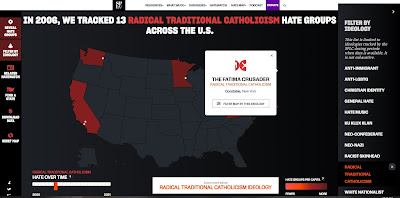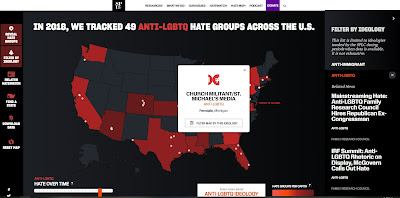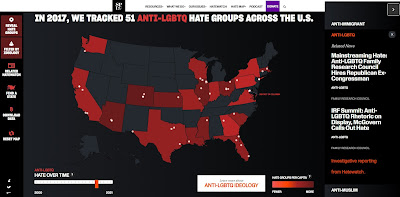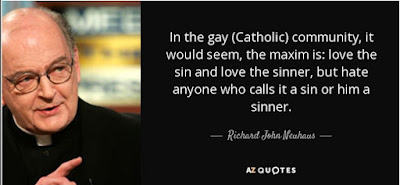As is my daily custom for years, I went over to Church Militant's website to watch the "Headline News" show and "The Vortex" which I enjoy very much.
"The Vatican on Thursday released documentation showing Pope Benedict XVI sought as early as 1988 to find quicker ways to permanently remove priests who raped and molested children but was rebuffed.A 1988 letter from then-Cardinal Joseph Ratzinger could serve as the Vatican's best defense to date that the future pope wanted to quickly remove pedophile priests but found himself stymied by church law.In the letter, republished in Thursday's Vatican newspaper, Ratzinger complained that church law made it exceedingly difficult to remove abusers if they didn't request to be laicized voluntarily. He asked to get around the problem by finding "a quicker and simpler procedure" than a cumbersome church trial to punish those priests who "during their ministry were found guilty of grave and scandalous behavior."He was turned down on the grounds that the priests' ability to defend themselves would be compromised.The documentation was included in an article in L'Osservatore Romano explaining an upcoming revision of church law, which was last updated in 1983. The Vatican has long sought to portray Benedict as having done more than anyone else at the Vatican to crack down on pedophile priests. But it has usually cited as his starting point a 2001 decision to have all abuse cases sent to his former office, the Congregation for the Doctrine of the Faith.The Feb. 19, 1988 letter shows he sought changes far earlier given that his office was already hearing from bishops who were having trouble dealing with pedophiles."[end quote]
"As the clerical abuse scandal erupted earlier this year, Benedict was mired by accusations that as prefect of the congregation, he repeatedly refused bishops' requests to have abusers removed.Ratzinger at the time was following laws and rules introduced by his predecessor Pope John Paul II, which largely left punishing such priests in the hands of local bishops, who often decided against conducting church trials because they found them too cumbersome.John Paul had also made it tougher to leave the priesthood, hoping to stem the tide of thousands of priests who left in the 1970s to marry.A consequence of that policy was that, as the priest sex abuse scandal arose in the U.S., bishops were no longer able to sidestep the lengthy church trial necessary for so-called laicization.Rather than conduct the church trials or report abusers to police, bishops often moved abusers from parish to parish or sent them for counseling — actions which later resulted in lawsuits by abuse victims that bankrupted many U.S. dioceses.Ratzinger's request for faster procedures was rejected by Cardinal Jose Rosalio Castillo Lara, who headed the Vatican commission responsible for implementing the 1983 code.In a March 10, 1988 letter to Ratzinger, Castillo Lara said simplifying the procedures "would endanger the fundamental right of defense" of the priest while straying from the church's legal-based system, according to the letter reprinted in L'Osservatore."[end quote]


















